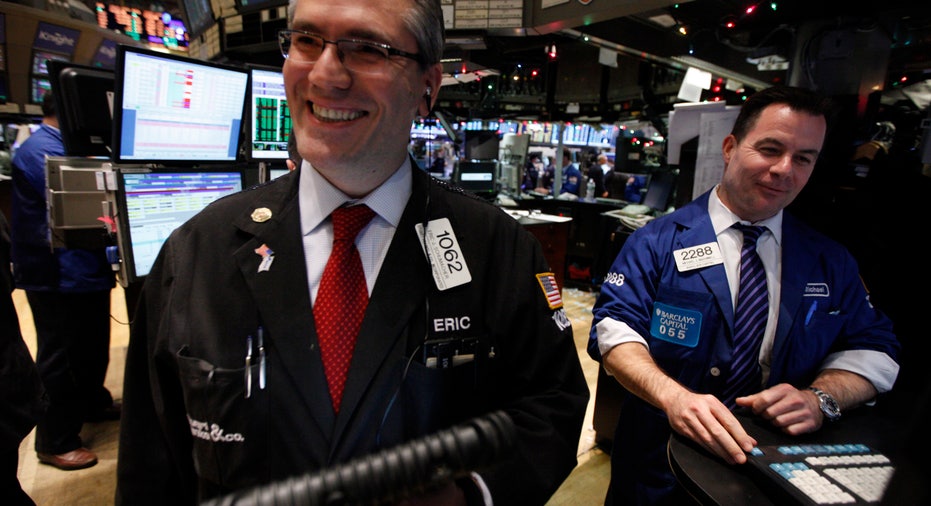Right-Brain Investing: No Math, No Problem

Many so-called right-brained people neglect to learn about investing. For creative, big-picture types, investing can seem too boring, too complicated … mathy.
In fact, investing can be as complicated or as simple as you make it. It's also highly relevant in today's world. It may be your best chance at retiring with a sizable nest egg.
Learn the Concepts Behind the Numbers
A 2011 survey by Aon Hewitt Inc., a risk management and human resources firm in Chicago, found that more workers than ever are participating in employer-sponsored defined contribution plans, with 75.8% of eligible employees participating in their company's retirement plan in 2010.
Most retirement plan participants are not investing experts, but they should be to some extent.
Even if you plan to funnel money only into premixed portfolio choices, such as target-date funds, until the day you stop working, learning basic investing concepts will make investing decisions easier. Plus, it can give you some insight into why you make those choices.
Here's a hint: Your decisions may not always be the most rational.
"If people are given three options of, say, a portfolio, they sometimes take the portfolio that satisfies them, not the one that promises the highest return with the lowest risk, which would be the standard option on a classical decision tree," says Victor Ricciardi, assistant professor of financial management at Goucher College in Baltimore.
"Understanding what type of decision maker you are can help you develop a nonemotional strategy," he says.
The best place to start investing is not with individual investments but with your overall financial plan or strategy, and that's a natural fit for people who prefer to look at the big picture instead of the fine print.
Forget the Math … to a Certain Extent
Being able to calculate the beta, or relative volatility, of any given stock won't necessarily get you to retirement. Having a solid process for constructing a financial plan and evaluating investments can.
"All of this math-based (stuff) that analysts engage in can't help you, quite bluntly," says Jason Apollo Voss, author of "The Intuitive Investor."
"Facts occur in the past. All of the math that they are going to apply is about the past. Investing unfolds in the future," he says.
The act of investing is trusting that the same events that have unfolded previously will happen again. Voss says he believes investors must use their intuition in addition to their analytic minds to determine how to invest.
People who are more stereotypically right-brain dominant have an advantage over more linear thinkers as they naturally tap into their intuition more readily.
"Investing is trying to understand a huge vast sea of information and understanding what is important to me right now," Voss says. "The right brain is good at knowing what you need to do now, what piece of information is important to you now."
When reading about investing concepts, if one theory or strategy makes you say "a-ha," that could be a sign that your intuition is offering insight into the best strategy for you.
Begin at the Beginning
A central investing plan will help all the pieces fall into place. The process will help you winnow and categorize your options rather than staring at 10,000 mutual funds, all seemingly equally deserving of attention.
Begin by evaluating your time frame for investing and the level of market risk you can stand. Both will inform major investment decisions in the future.
Next come asset-allocation decisions, or determining how to portion out funds to broad asset classes. Asset classes include categories such as large-, mid- and small-cap stock funds, international and emerging markets, and fixed-income investments.
Index funds and exchange-traded funds, or ETFs, offer vast diversity in nearly every asset class at low costs. They may be the best choice for individual investors.
"For most individuals, simply buying a low-cost index fund with a buy-and-hold strategy will be the best policy," says Jay Ritter, Cordell professor of finance at the University of Florida.
"Some people say if you invest in index funds, you're guaranteeing mediocrity. But the reality is that most people would be lucky to be doing mediocre," he says.
In fact, the average individual investor grossly underperforms the market, according to research by Dalbar, a financial services research company in Boston.
Over the past 20 years, ending December 2010, the average equity investor garnered a return of 3.83% versus 9.14% for the Standard & Poor's 500 index over the time frame.
Simply buying and holding a mutual fund or ETF that tracked the index could have produced better results than many strategies employed by the average investor.
Avoid Common Pitfalls
In making decisions, people cut out extraneous information and use shortcuts or rules of thumb, cognitive strategies known as heuristics.
In 1985, a seminal paper by DePaul University finance professor Werner DeBondt and University of Chicago economist Richard Thaler, "Does the stock market overreact," revealed facts that the investment community now takes for granted: Investors overreact to both bad and good news.
The authors also found that investors tend to overemphasize very recent news or whatever comes easily to mind, a process known as availability bias. That makes chasing recent trends and buying investments based on past performance a real danger.
People "tend to buy in after a given fund has gone up. So you had lots of money pouring into growth funds in 2000 but not in 1994, before 5 years of good performance. Instead, they buy after 5 years of good performance," Ritter says.
A solid investment plan can help you avoid making emotional decisions and blindly following the herd. Simply not making the mistakes that nearly everyone makes can make you look like a genius.
Learning basic investing concepts is nearly mandatory in today's world. The good news is that investing success is not limited to mathematical savants. The right brain also brings unique talents to the table.



















